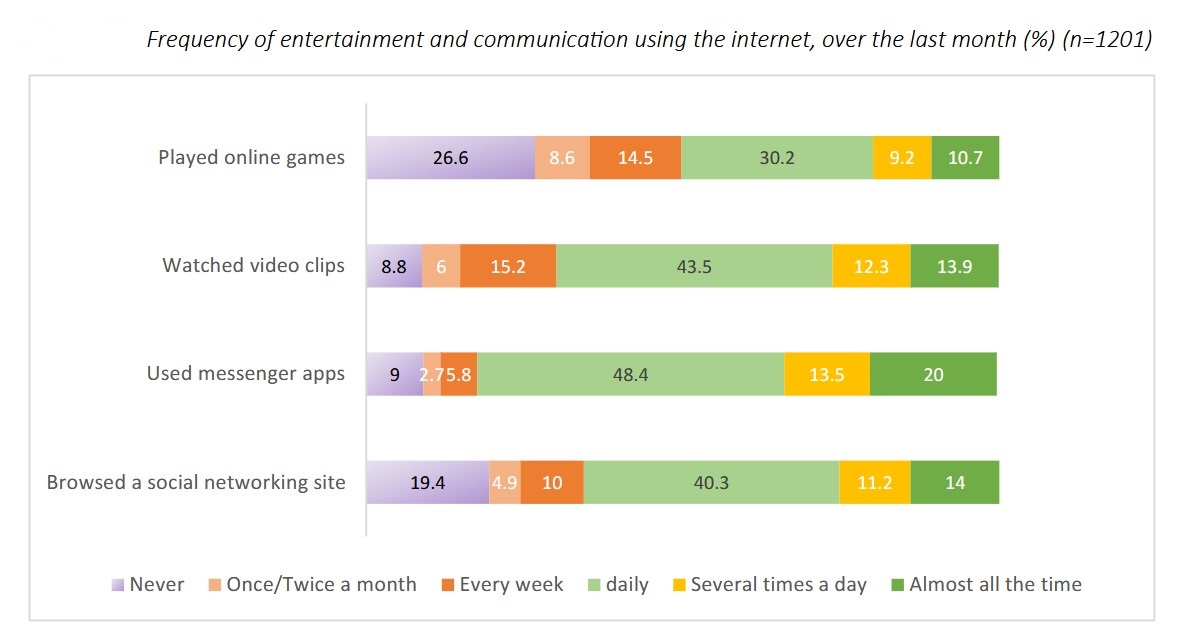The findings of the Kazakhstan Kids Online study provide critical insights into children’s digital lives in the country, highlighting both the opportunities and challenges of growing up in an increasingly connected world. As the digital landscape evolves, initiatives like this are essential to inform policies and interventions that support children’s rights, wellbeing, and resilience online.
Children’s internet access and use
Kazakhstani children are accessing the internet at increasingly younger ages, with most going online between the ages of five and eight. Internet access is generally unrestricted, with minimal gender disparity, although urban children have greater access compared to their rural counterparts. Popular online activities include chatting with friends, watching videos, and using the internet for studying and learning.
While early internet use fosters skills and capacities, it underscores the need for targeted messaging and support for younger children and their parents. These should focus on age-appropriate online activities, foundational digital safety, and guidance on help-seeking when encountering upsetting or harmful content.

Risk-taking in online communication
Social media and gaming accounts are ubiquitous among children of all ages, including those below the mandatory age of 13. Many children interact online with people they do not know offline and may even share personal photos or videos. This trend highlights the dual nature of online interactions: while they enable isolated or marginalised children to connect with wider communities, they also introduce risks, particularly for vulnerable groups.
Digital skills
Kazakhstani children generally express confidence in a broad range of digital skills, including those related to safety, social interaction, creativity, and communication. However, proficiency in technical skills, such as coding, remains low. While skill levels show little gender disparity, older children report higher skill levels, which may simultaneously increase their exposure to online risks and their ability to navigate and mitigate these risks effectively.
Parental mediation
The study reveals relatively high levels of active parental mediation in children’s internet use. Most children report talking to their parents about their online activities and seeking support when something bothers them. Parents often encourage exploration and creativity online while maintaining open discussions about digital safety. This proactive involvement can significantly enhance children’s ability to manage online risks and reduce the likelihood of harm.
Research methodology
The Kazakhstan Kids Online study employed a mix of qualitative and quantitative methods. A nationally representative household survey involved face-to-face interviews with 1,201 children aged nine to 17 and their 1,200 parents or caregivers across all regions of Kazakhstan. Additionally, 300 teachers participated in web-based personal interviews, and focus group discussions were held with children, parents, and teachers. This comprehensive approach ensured a well-rounded understanding of children’s digital experiences in Kazakhstan.
Acknowledgements
Report authors: Patrick Burton, Aislu Bekmussa and Lidiya Beisembayeva
Publisher: UNICEF Kazakhstan
Sampling and data collection: Andrey Skuratov, BISAM








